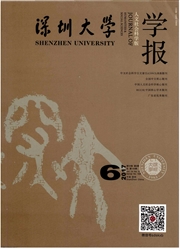

 中文摘要:
中文摘要:
有关乡镇政府及其行为的现有研究往往更多地关注组织的正式规则,较少关注那些隐性的但却对干部行为起有重要影响的非正式规则.乡镇政府中的非正式规则生动地体现在人情面子规则、晋升资本规则以及关系运作规则等方面,它们是乡村社会生存法则在乡村政治场域中的延续,是乡镇干部“乡土性”与“官僚性”双重身份在干部行为上的体现.理性认识非正式规则的存在及其影响,并防止其引发乡镇干部行为的异化,是未来深化乡镇行政体制改革的一个重要议题.
 英文摘要:
英文摘要:
Regarding government practices at the sub-county level, current studies tend to focus on formal organizational procedures and protocols at the expense of the informal and often hidden rules that inform and significantly impact cadre behavior. Many of these rules reveal themselves in personal favors, accumulation of political capital for career promotion and operations involving connections. These informal rules are a continuation of the laws of rural survival into the domain of public service. The cadres involved in these processes possess the dual identity of farmers and bureaucrats. Awareness of existence of such unwritten rules and of their impact can assist in corruption prevention among these cadres and serves as an important issue in reforming sub-county administrative institutions.
 同期刊论文项目
同期刊论文项目
 同项目期刊论文
同项目期刊论文
 期刊信息
期刊信息
